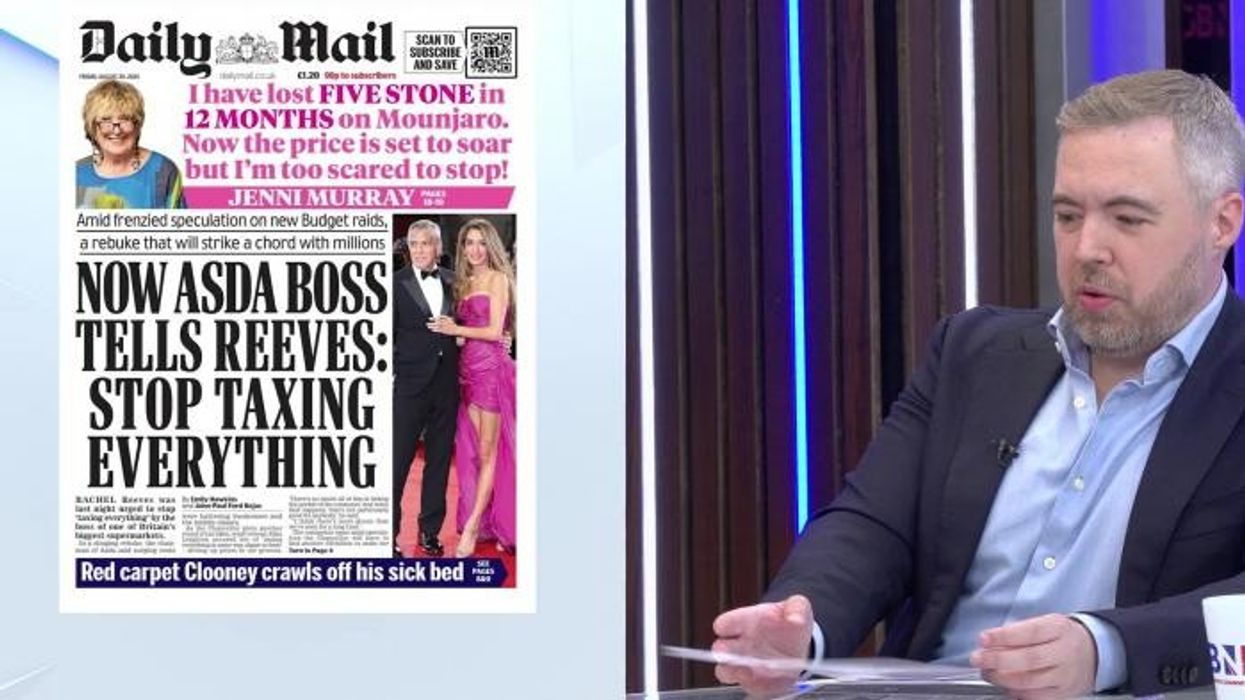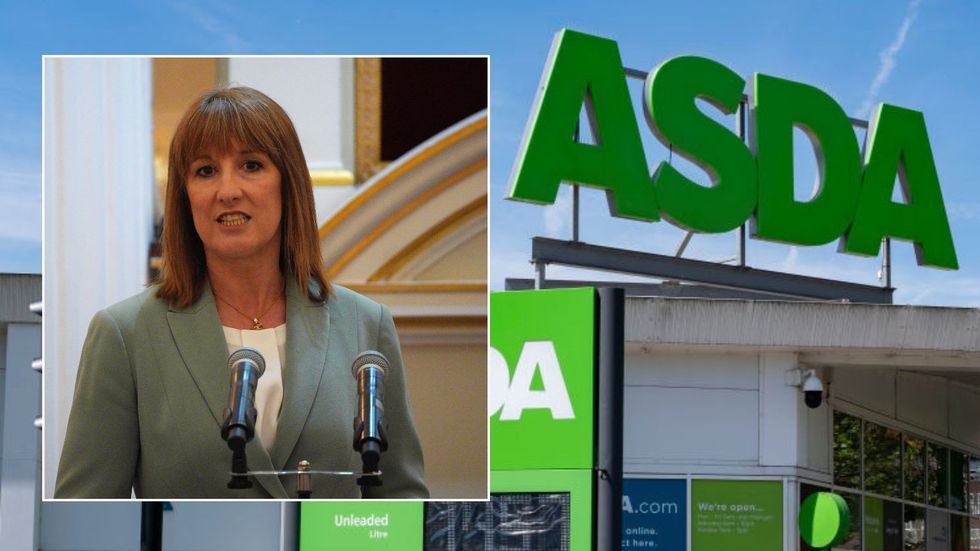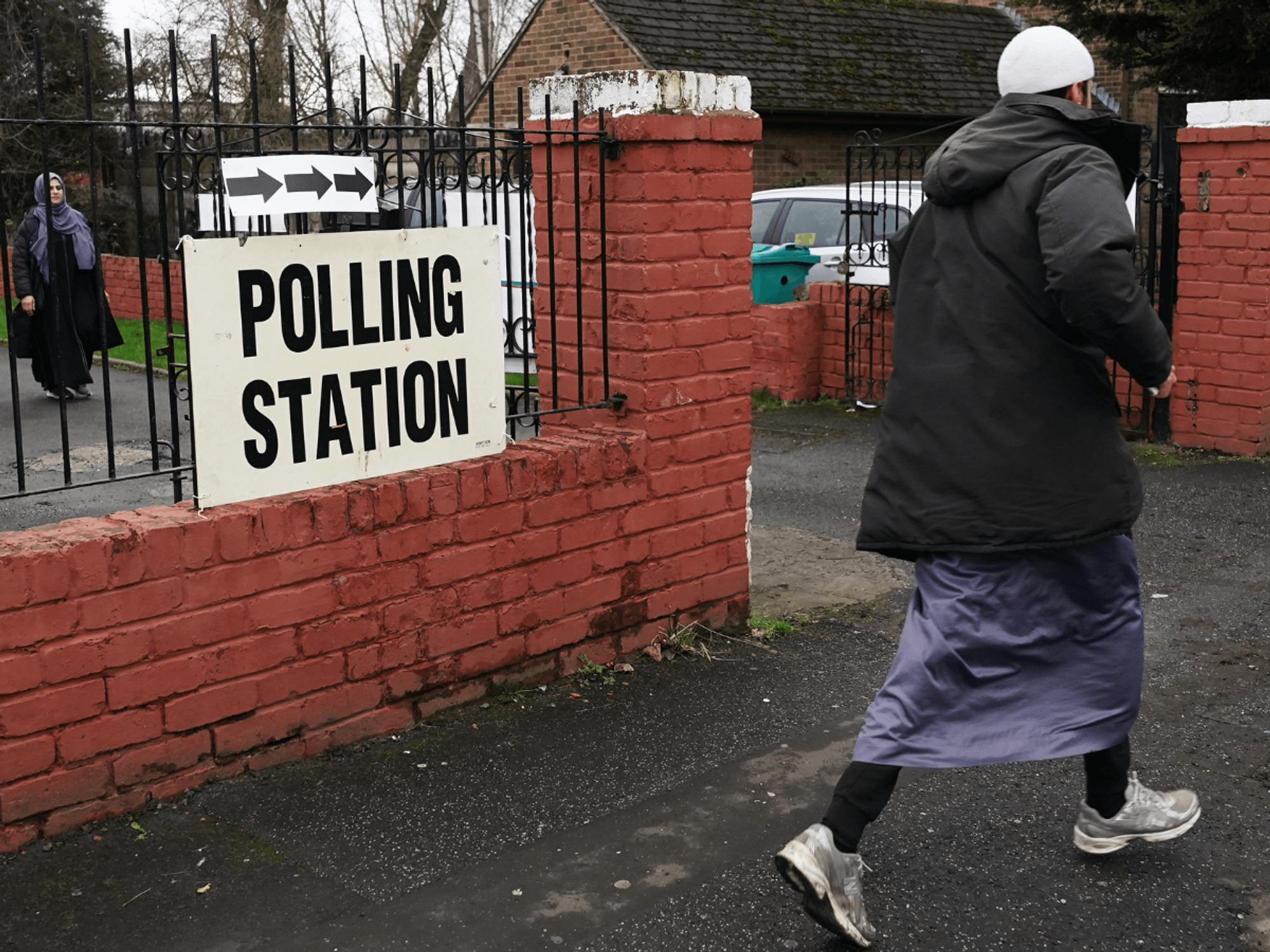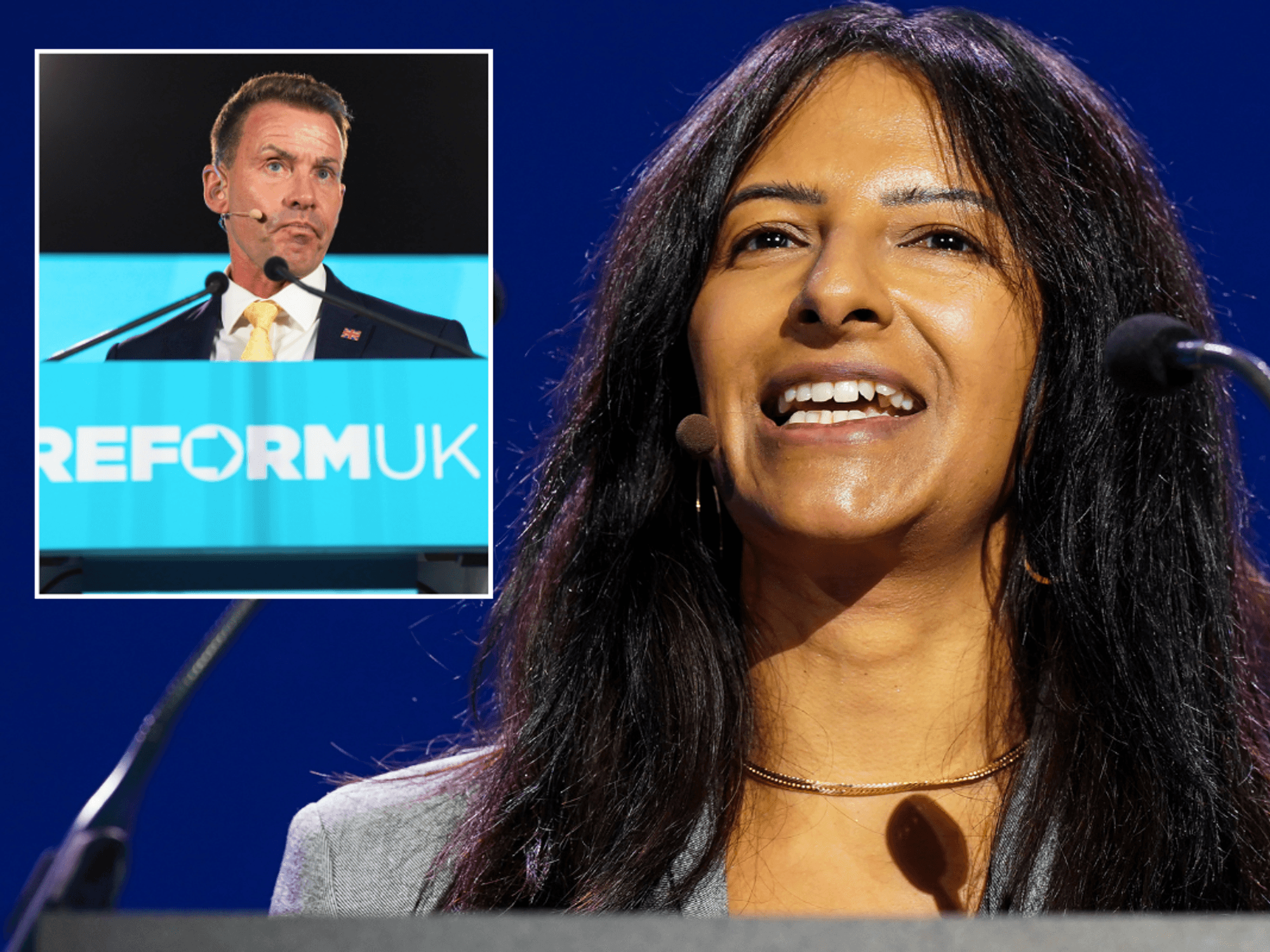'Stop taxing everything': Asda boss fires warning at Rachel Reeves

'Rinsing every drop from the British economy!' Rachel Reeves skewered by GB News guest as Chancellor branded 'desperate' |
GBN

Allan Leighton has urged the Chancellor to not strike businesses with more taxes in the upcoming budget
Don't Miss
Most Read
Asda's chairman has warned Rachel Reeves not to launch another tax raid in the upcoming Budget as food inflation continues to hit shoppers hard.
Allan Leighton said the Chancellor should stop "taxing everything in some way, shape or form" and focus instead on investing in Britain to drive growth.
His comments arrive as households face mounting pressure from rising food costs, with inflation in this sector reaching 4.2 per cent in August. This represents the steepest increase since February 2024, according to the British Retail Consortium.
The Asda executive chairman warned that proposed fiscal changes are "very unhelpful", stating: "All these things don't make life easier. They are contributing to inflation, and inflation is hitting the pocket of the consumer."
His remarks reflect growing unease within the retail sector about potential budgetary measures.
The Chancellor faces pressure to address a £50 billion shortfall in public finances whilst adhering to her fiscal commitments.
Treasury officials are examining multiple revenue-raising options, with a potential capital gains levy on high-value property sales emerging as a prominent consideration.
This so-called "mansion tax" would target owners of expensive homes when they sell their properties.
Additional measures under review include prolonging the current freeze on income tax thresholds, which gradually pushes earners into higher tax brackets as wages increase.
This plea follows the increasing costs on businesses, including the increase in employee national insurance contributions expected of employers.
Do you have a money story you’d like to share? Get in touch by emailing money@gbnews.uk.
 The boss of ASDA has urged the chancellor to rethink tax rises | GBN
The boss of ASDA has urged the chancellor to rethink tax rises | GBNThe Chancellor is also contemplating applying National Insurance contributions to landlords' rental income, marking a significant expansion of the levy's scope.
According to the British Retail Consortium (BRC)-NIQ Shop Price Monitor, food inflation rose to 4.2% this month, up from 4% in July, marking the highest level since February 2024.
Leaders at the trade body warned that this acceleration is putting additional strain on families already facing a tough cost-of-living crisis.
Mr. Leighton emphasized that supermarkets are striving to keep prices low for customers as they try to "find a way through" the challenges.
This rise in food prices follows a statement from the Bank of England earlier this month, which noted that the increase in national insurance contributions in April has played a role in driving up food prices.
Helen Dickinson, CEO of the BRC, stated, "Shop price inflation has reached its highest point since March last year, driven by rising food prices. This puts even more pressure on families already struggling with the cost of living."
She added, "Retailers are doing everything they can to limit price increases for households, but as the Bank of England has acknowledged, the £7 billion in additional costs from last year's budget has created a difficult challenge for retailers."
Last week, more than 60 retail executives, including leaders from Tesco, Sainsbury’s, and Boots, warned Ms. Reeves that raising taxes further in the upcoming autumn budget could undermine her efforts to improve living standards in the UK.

Food prices continue to spiral
| GETTYThe cost of sourcing goods has skyrocketed, from the increased cost of raw materials to higher transportation fees.
With these escalating expenses, supermarkets often raise prices to keep up with the financial pressures.
While many retailers are striving to keep prices manageable for their customers, the reality is that these cost increases are difficult to absorb without impacting the price at the checkout.
In turn, consumers feel the pinch as everyday items become more expensive, further exacerbating the cost-of-living crisis.

The ASDA boss wants the chancellor to protect businesses
| PAFor families already managing tight budgets, the rising prices on basics like food, cleaning supplies, and personal care items can make a significant difference in their overall financial strain.
Unfortunately, until these cost pressures ease, the burden of rising prices will continue to fall on shoppers, who may find their buying power increasingly stretched.
Laura Madeley, Director and Head of Hospitality & Leisure at Menzies says:
“Payroll costs are piling up, and businesses can’t just keep raising prices to cope. Seasonal staffing, flexible pay models like salary sacrifice and tronc systems to keep fixed costs low, and smart use of apprenticeships or government reliefs can help ease the burgeoning tax burden.
While cashflow is tight, investing in training remains essential to boost productivity and retain staff. Alternative funding routes, like invoice financing or revenue-based lending can help smooth cashflow during low-demand months, and government-backed loan schemes and hospitality focused grants can offer a vital reprieve.
With the Autumn Budget looming, the sector urgently needs real relief on VAT, NIC and business rates to protect jobs and keep UK hospitality alive.”










